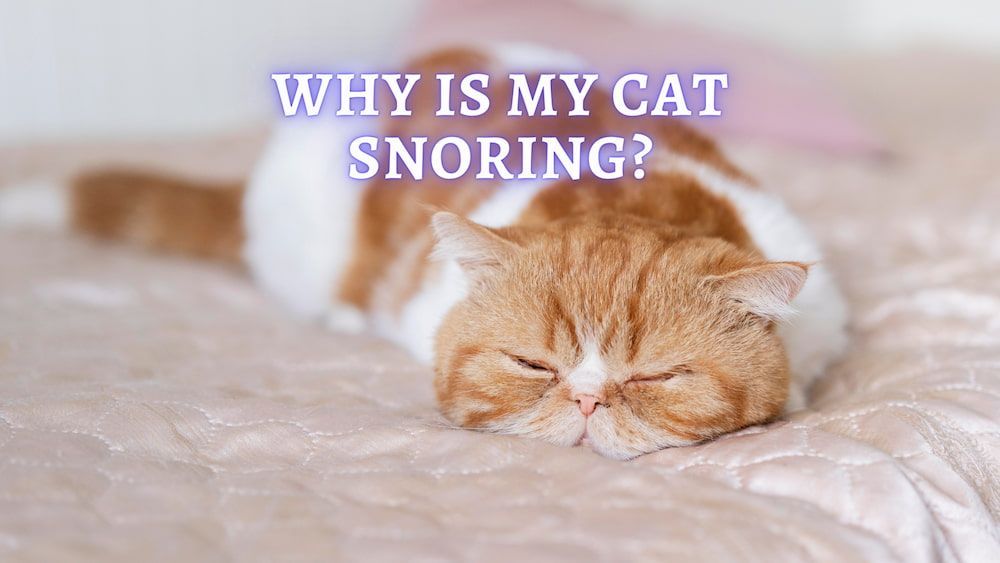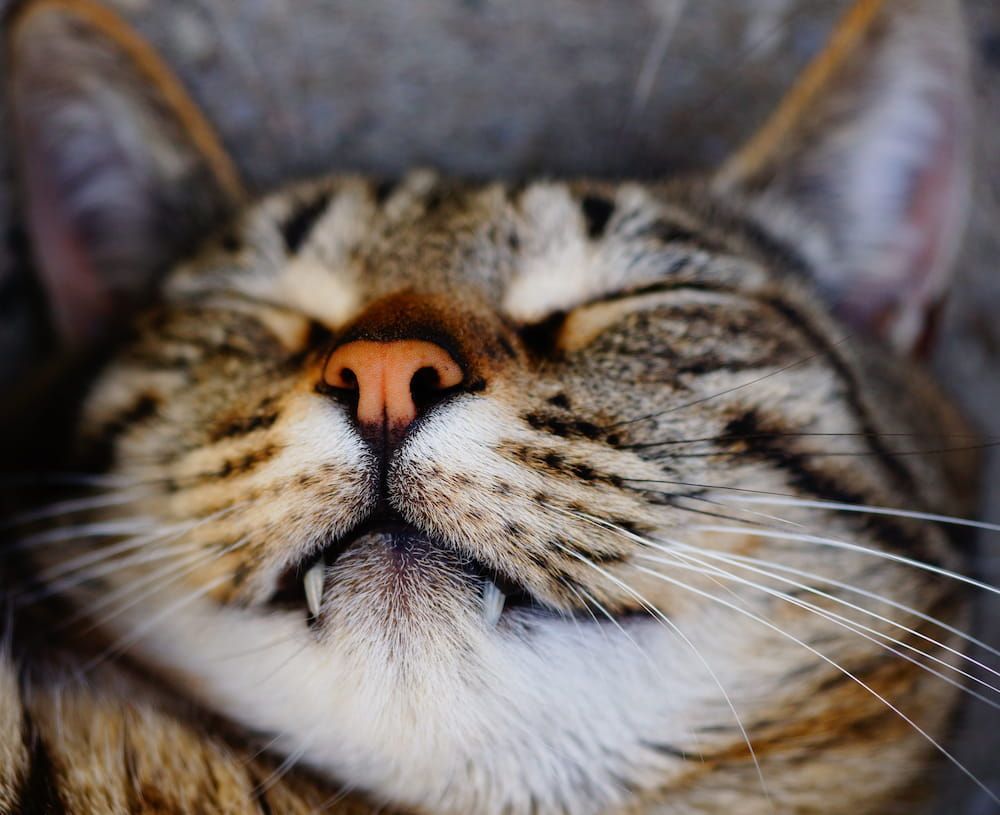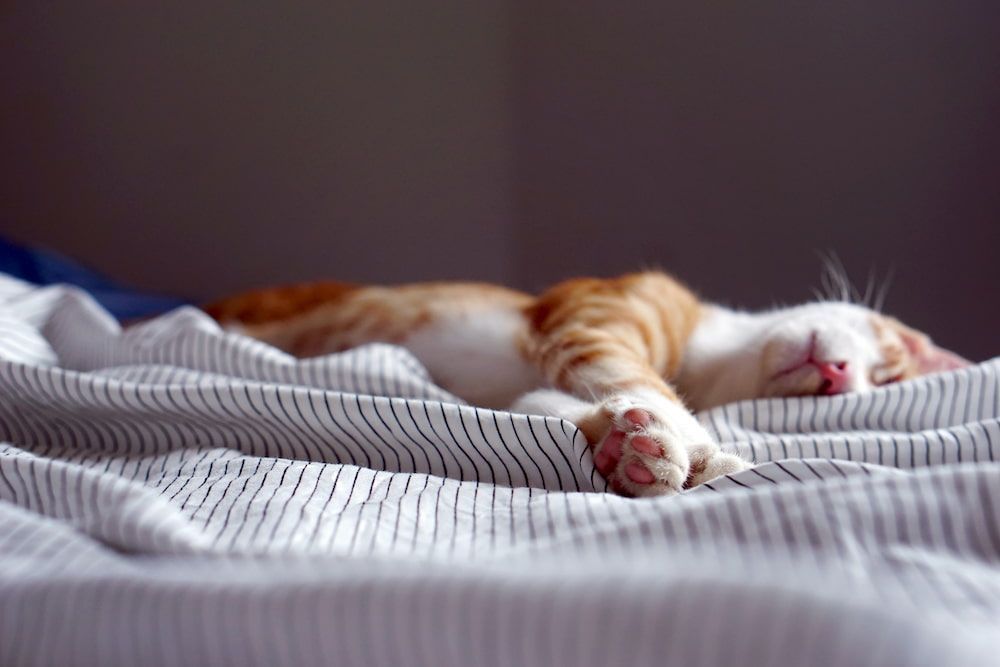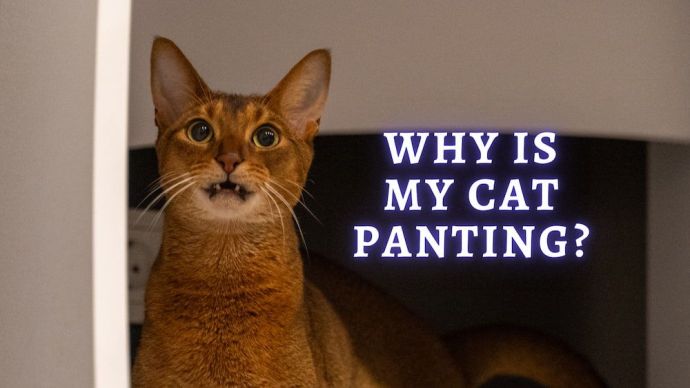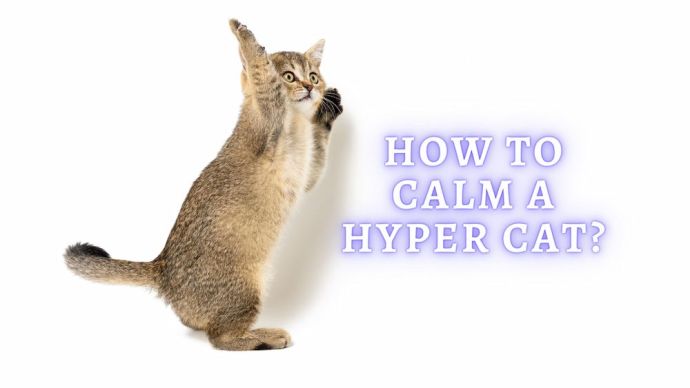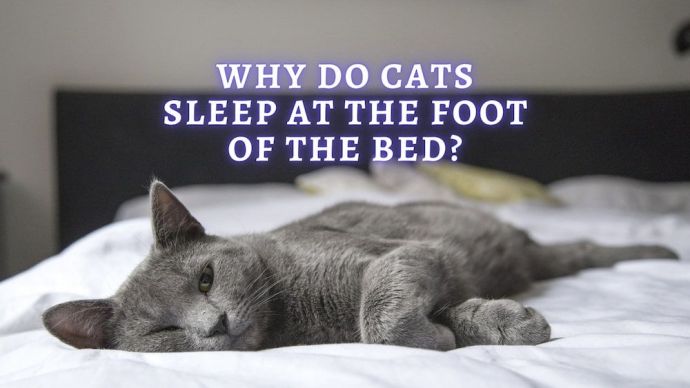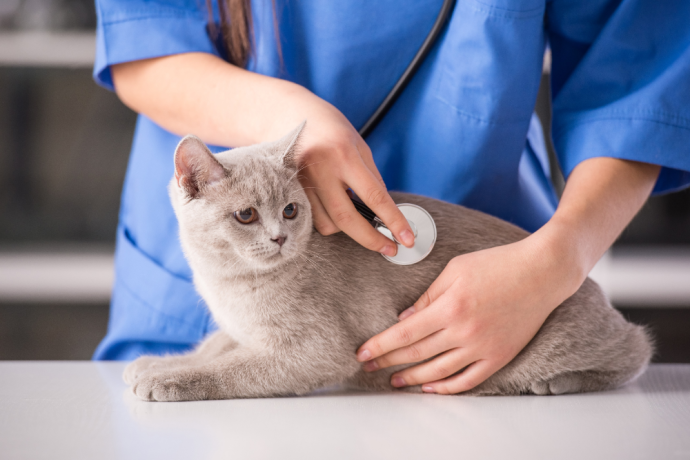Cat Snoring: Why is My Cat Snoring?
Written by:
Author: Vicki Smirnova
Vicki Smirnova is a professional writer and editor who adores animals and helps readers get along well with their pets. She has been working in digital media for more than 5 years and has great experience writing content about lifestyle, including pets. Vicki specializes in dog health and nutrition, cat feeding, dog training. She is an aquarium lover and is passionate to write about fish care at home. Also, Vicki headed several websites and worked as a news editor.
View all 244 articlesLearn about our editorial process and veterinary review board.
Viewed: 95
Updated on: 09/12/2022
“My cat snores in his sleep; is this normal? Is this related to any health problems?” Such questions often worry domestic cat owners.
Cat snoring may be related to the physiological characteristics of a particular breed of cat. During deep sleep, the pet relaxes its entire body, including the respiratory organs and throat muscles. This entails narrowing the airways, which results in a vibration of the soft tissues due to the passing air.
Cats can snore because of an uncomfortable sleeping position. Snoring, in this case, is due to the restriction of the passage of airflow. After the cat changes its posture, it should stop snoring.
Due to the particular structure of their muzzles, short facial bones of the skull and nose, small nostrils and narrow nasal passages and an elongated palate, brachycephalic breeds are prone to snoring from birth. If a brachycephalic kitten sniffles through its nose during sleep, this may be normal because the matter is in its unique anatomy. But this is true only if there are no other symptoms.
Strong cat snore (sap) – and several associated pathological features that seriously impede breathing – is called brachycephalic syndrome. This syndrome is typical for cats with small noses and round heads: Persians, exotics, British and Scottish Fold.
It is possible to remove the brachycephalic syndrome surgically; however, it is not always justified. However, there are such manifestations when, due to this syndrome, a cat has bluish mucous membranes, the airways swell, the load on the heart increases, and – after the slightest overheating or physical activity – convulsions develop or the cat loses consciousness. This condition significantly impairs the quality of life and can lead to death and, therefore, needs treatment.
How does cats snore happen?
Snoring is a sound resulting from the vibration of the soft tissues of the upper respiratory tract. Snoring can also occur if something blocks the free flow of air into the lungs. There are two main types of snoring:
- Stertor. This occurs due to vibration of soft tissues or in the presence of secretions in the upper respiratory tract, most often due to obstruction of the cat’s airway inside the nose or throat.
- Stridor. This occurs when hard tissues vibrate, producing a sharp, high-pitched sound. The cause may be nasal obstruction or narrowing of the larynx.
Reasons why cats snore
Age
As the cat ages, the muscles around the nose, pharynx, and larynx may lose tone. Therefore, vibrations in these areas can be more intense.
Cat breeds features
Anatomical features and snoring are characteristic differences among brachycephalic breeds. These breeds have anatomical features that can make life difficult: constricted nostrils, an elongated soft palate, and a narrow trachea. This causes difficulty in breathing – animals wheeze, grunt, sniff and snore in cats’ sleep, do not like to move much, and are more supine.
Excess weight
Suppose a cat’s weight is unnormal, and the tissues surrounding the upper respiratory tract of an overweight pet are covered with fat. In that case, this can exert additional pressure, blocking the free passage of air.
Cold virus
Common cold with a runny nose is one of the cats’ most common causes of snoring and glanders. Mucus is abundantly secreted in the nose, clogging the passages, resulting in the air passing with difficulty and unevenly, causing characteristic sounds. If the animal catches a cold under the air conditioner or picks up a weak virus, the immune system will likely cope with it. But if the condition worsens or does not go away for several days, and if other symptoms of the disease are noticeable, you should contact a veterinarian.
Foreign objects in the airways
Foreign objects entering the air passages can cause extraneous sounds. The animal’s nose may contain dust, debris, food, pieces of plants or other objects.
Upper respiratory infections
Infectious diseases of the respiratory tract are accompanied by tissue swelling, inflammation and accumulation of mucous secretions. All this interferes with normal cat breathing and narrows the nasal passages.
Allergies and Asthma
Due to these disorders, severe swelling occurs in the airways, so snoring is common in such situations.
Tumors and polyps
Neoplasms can be benign or malignant. Tumors can block the passages in the nasal cavity and larynx.
Climate
Snoring can be caused by low air humidity since this leads to dryness of the mucous membrane of the airways and oral cavity.
When is snoring in cats not normal?
Cat snoring is normal if it occurs only during sleep without a change in the animal’s behavior and is not accompanied by other symptoms. If unusual sounds are not a frequent symptom, then there is nothing to worry about. But regular cat’s snoring during sleep and rest can signify various ailments and diseases. To understand their nature promptly and help the pet, you will need to take your cat to the veterinarian. The main thing is not to delay it to have time to help your cat in serious danger.
The sudden onset of snoring, sniffling or their progression, as well as cases when the cat is always snoring and sniffing while breathing, can mean the presence of health problems. Also abnormal is the appearance of additional symptoms, such as coughing, sneezing, nasal discharge, shortness of breath and other signs.[1]
How to know if it is not a danger to my cat
The appearance of such symptoms as breathing with an open mouth, shortness of breath, temporary cessation of breathing (often during sleep), poor appetite, fatigue and apathy require a quick response and a call to the veterinarian.
If your cat starts snoring more or louder than usual and/or other symptoms appear (coughing, discharge from the nose and/or eyes, sneezing) may indicate a deterioration in its condition, which requires a consultation with a specialist.
The main ways to diagnose the cause of snoring are: biochemical and clinical blood tests, x-ray examination of the chest and tests for respiratory infections. In some situations (foreign objects, polyps, neoplasms), additional diagnostics will be required: endoscopy, computed magnetic resonance imaging of the head or tomography, and cytological and histological examination of neoplasms.
Treatment may be aimed at eliminating the underlying cause and is prescribed after a clinical examination and all necessary diagnostic procedures. In most cases, it is performed on an outpatient basis using medications.
If the cat is overweight, it is necessary to seek the advice of a veterinary nutritionist to select a properly balanced diet and develop a weight loss program.
If the climate in which the cat lives is low humidity, it is recommended to use a special air humidifier that will prevent the pet’s mucous membranes from drying out. Creating a cozy bed so the cat can sleep more comfortably may also be necessary.
How can I help my cat stop snoring?
The treatment for snoring in cats largely depends on its cause. That is why it is impossible to say exactly how a particular animal will be treated. Everything will depend on the results of preliminary diagnostics. In the case of an elongated palate, an operation is possible to change its shape; however, this is rarely done, as such procedures are costly.
In most cases, feline upper respiratory tract infections are associated with the common cold. To alleviate the condition, nasal drops are prescribed to clear the paths for air passage, and antibiotics are used if necessary. Veterinarians also recommend using a humidifier in the home.
Snoring in most cases is not dangerous, and sometimes it is enough to use special tampons for the ears. But this problem should not be neglected and consult a vet with any suspicion of an ailment.
Is something wrong with my snoring cat?
The owner of a cat who snores when resting should be careful. He must listen to the sniffing of the pet and understand how often this happens.
If the cat rarely wheezes intensely when breathing in and out, there is no reason for concern. However, constant uncharacteristic sounds at rest can indicate serious health problems with a mustachioed friend. Only a veterinarian can determine the cause of the symptom and help the pet. Sometimes, a delay in visiting the veterinary clinic and proper treatment leads to death.
There are several pathologies and non-dangerous reasons why a cat snores in its sleep. These include diseases of the respiratory, cardiac and urinary systems, polyps, paralysis, breed characteristics and simply advanced age. The list can be long, so on their own, without special education and experience, owners will not be able to find out the reason.
RELATED: Why Is My Cat Wheezing?
FAQ
What does it mean if a cat snores?
Snoring in its sleep can be a sign of various dangerous diseases, such as diabetes or pneumonia. If there were no unusual sounds before, but now there are, bring the pet to the veterinarian to diagnose the disease on time or exclude the possibility of heart failure.
Are cats okay if they snore?
First, you need to decide if your cat’s snoring is normal or not. If your pet is brachycephalic, or you have heard it snore throughout its life without deterioration, nothing needs to be done. However, if the cat’s snoring progresses, becomes more intense, louder and/or it has difficulty breathing, the pet should be urgently taken to a veterinary clinic for examination.
Article Sources:
- “Why Do Cats Snore – and Is Snoring in Cats Normal?” Petplan, petplan.co.uk/pet-information/blog/is-it-normal-for-my-cat-to-snore-snoring-cat/.
 Cat Veterinary Tips Cat Chewing Cardboard: Why Does My Cat Chew On Cardboard? Vet Advice
Cat Veterinary Tips Cat Chewing Cardboard: Why Does My Cat Chew On Cardboard? Vet Advice - 4382
- 0
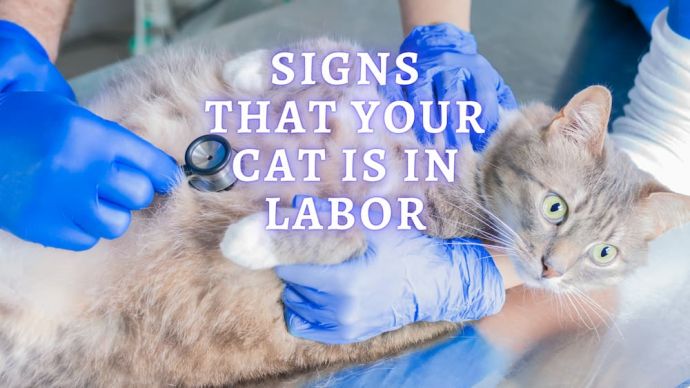 Cat Veterinary Tips Signs That Your Cat is in Labor: How to tell if a Cat is Pregnant?
Cat Veterinary Tips Signs That Your Cat is in Labor: How to tell if a Cat is Pregnant? - 15122
- 1
 Cat Care Why Does My Cat Attack My Legs? 10 Reasons Why and What To Do About It (Vet-Approved Advice)
Cat Care Why Does My Cat Attack My Legs? 10 Reasons Why and What To Do About It (Vet-Approved Advice) - 46013
- 21
 Cat Veterinary Tips Cat Stomach Gurgling: Vet Advice on Why is Your Cat Stomach Gurgling?
Cat Veterinary Tips Cat Stomach Gurgling: Vet Advice on Why is Your Cat Stomach Gurgling? - 36469
- 4
 Cat Veterinary Tips My Cat Lost its Voice: Can Cats get Laryngitis? (Vet Advice)
Cat Veterinary Tips My Cat Lost its Voice: Can Cats get Laryngitis? (Vet Advice) - 23554
- 13









